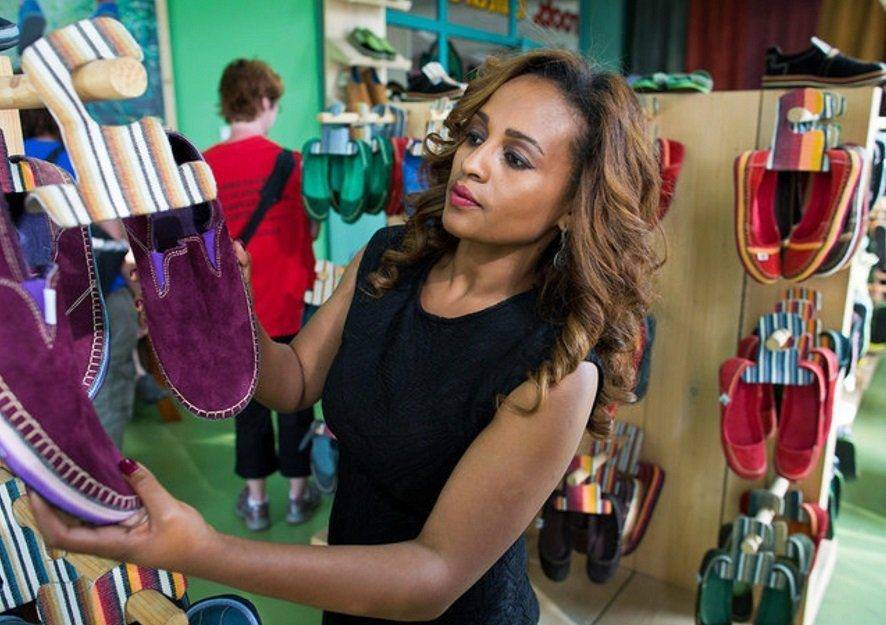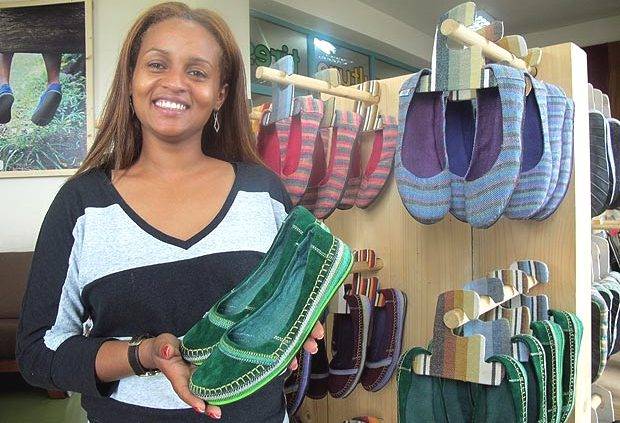The Entrepreneur
Atul Shah: External Pressures Behind Nakumatt’s Collapse in East Africa
A significant financial blow came in 2015, when Atul Shah bought out the 7.7% stake owned by former MP and businessman Harun Mwau, reportedly using over Ksh 3 billion in working capital for the buyout.

:Explore Atul Shah’s insights on Nakumatt’s collapse, citing cash flow crises and external pressures that led to the fall of East Africa’s retail giant.
By Charles Wachira
Atul Shah, the former CEO and a pivotal figure behind Nakumatt Holdings, has consistently attributed the collapse of what was once East Africa’s largest retailer to a mix of external economic pressures, legal challenges, and shifting market dynamics. However, a closer examination reveals that the downfall was also significantly influenced by internal mismanagement, debt-fueled expansion, and governance failures.
Founded in 1992 as a modest mattress shop in Kenya, Nakumatt quickly rose to prominence, expanding into a network of over 60 stores across Kenya, Uganda, Tanzania, and Rwanda by 2016. “We started with a vision to transform retail in East Africa,” Shah recalled during a retrospective interview. “Our journey began humbly, but with a relentless pursuit of growth.”
Shah’s grand ambitions for the company were evident. “We aimed to create a modern shopping experience that East Africans hadn’t seen before,” he expressed in another interview, reflecting on Nakumatt’s meteoric rise. By 2016, Nakumatt operated 45 branches in Kenya and an additional 17 across Uganda, Tanzania, and Rwanda, with flagship stores in Nairobi, Kampala, and Dar es Salaam bustling with customers. The retailer was a household name, known for its wide product range, competitive pricing, and convenient locations.
However, in 2016, signs of trouble began to surface. The company was grappling with severe cash flow problems due to its aggressive expansion strategy. “They grew too fast and too recklessly,” remarked retail analyst Jane Kimani. “The company took on excessive debt to fuel this growth without adequately managing its financial obligations.”
The financial distress was evident, as Nakumatt owed over Ksh 30 billion (approximately $296 million) to creditors by 2017, with Ksh 18 billion owed to suppliers, Ksh 4 billion to holders of commercial paper, and the rest to banks. “At one point, Nakumatt was unable to pay its suppliers, landlords, and employees, leading to a chain reaction that forced them to close numerous stores,” noted financial analyst David Kiptoo.
In an effort to stem the financial hemorrhage, Nakumatt sold a 25% stake in the company to a foreign investment fund for $75 million. “We believed this investment would provide the liquidity needed to stabilize our operations,” Shah stated at the time. “Unfortunately, it wasn’t enough.”
The company faced increasing scrutiny over its financial dealings, with allegations of money laundering surfacing in 2017. The Kenya Revenue Authority (KRA) initiated investigations into Nakumatt’s financial practices, suspecting that the retailer had used its extensive network of stores and complex financial arrangements to launder money. Sources within the KRA reported, “Nakumatt was suspected of inflating invoices and engaging in questionable financial transactions to funnel illicit funds.”
These allegations compounded Nakumatt’s troubles. Global Credit Ratings downgraded the company to BB- as its debts continued to spiral out of control. By 2018, the retailer had closed over a dozen stores, and loyal customers began flocking to competitors like Tuskys and Carrefour.
In January 2018, Nakumatt was placed under administration after creditors filed a court petition seeking intervention. The appointed administrator, Peter Kahi, described the situation as dire. “Nakumatt was essentially insolvent,” Kahi stated during a press briefing. “We were left with little choice but to attempt to sell off assets to settle debts.”
Despite efforts to save the company through restructuring and negotiations with creditors, Nakumatt’s collapse seemed inevitable. “The weight of the debt, coupled with the money laundering accusations, irreparably damaged Nakumatt’s brand,” asserted Jane Kimani. “It was a perfect storm.”
By mid-2020, Nakumatt’s creditors had enough. They voted overwhelmingly to wind up Nakumatt Holdings, signaling the end of an era for a company that had once symbolized the promise of modern retail in East Africa. “The company expanded too quickly without ensuring it had the financial footing to support that growth,” stated Mwangi Njoroge, an industry expert. “When allegations of financial impropriety surfaced, that was the final nail in the coffin.”
Shah, who had steered the company for over two decades, was deeply affected by Nakumatt’s downfall. “It’s devastating to see something we built collapse like this,” he lamented in a statement following the winding-up decision. “We had big dreams for Nakumatt, but mistakes were made, and we couldn’t recover from them.”
The closure of Nakumatt marks the end of an era for retail in East Africa and leaves behind a cautionary tale for other regional businesses. With debts exceeding Ksh 30 billion, the impact of Nakumatt’s failure will continue to ripple through its creditors, suppliers, and former employees for years to come. Its story is one of ambition, growth, and ultimately, downfall—a tragic fall from grace for what was once the region’s largest retail empire.
The Broader Economic Context
- Economic Challenges and the 2016 Interest Rate Cap: Atul Shah frequently pointed to Kenya’s 2016 interest rate cap as a significant trigger for Nakumatt’s financial troubles. Speaking to The Business Daily, he argued that the cap, which limited the interest rates banks could charge on loans, severely restricted Nakumatt’s ability to access credit during a critical time. “We were growing rapidly, and our working capital needs were significant. The interest rate cap affected the banks’ ability to lend to us,” Shah explained, suggesting that it limited Nakumatt’s financing options as cash flow issues mounted. However, analysts note that Nakumatt was already heavily leveraged before the cap, with its aggressive expansion primarily funded by short-term loans. By the time the cap took effect, the company was burdened with a debt of Ksh 30 billion, split between suppliers, banks, and other creditors.
- Liquidity Crisis and Supplier Payment Delays: Shah cited Nakumatt’s liquidity crisis as a core reason for its downfall. “The cash flow issue really hurt us,” he admitted in a 2017 interview, explaining that the liquidity problems stemmed from delayed payments to suppliers. This created a vicious cycle: as suppliers refused to stock Nakumatt’s shelves, foot traffic dwindled, leading to further declines in sales. Nakumatt’s outstanding debt to suppliers exceeded Ksh 18 billion, resulting in lawsuits and strained relationships. Despite Shah’s insistence that the company was simply enduring a difficult financial period, suppliers became increasingly frustrated and withdrew support, leaving shelves empty. “We couldn’t recover after that,” Shah lamented.
- Poor Corporate Governance: Despite Shah’s focus on external challenges, critics and analysts have highlighted poor corporate governance as a central factor in Nakumatt’s collapse. Reports following the liquidation revealed that Nakumatt’s rapid expansion was fueled by unsustainable debt, borrowing heavily to finance its growth strategy. The Competition Authority of Kenya (CAK) criticized Nakumatt’s internal governance and financial practices. “The company’s finances were opaque, with many records hidden or incomplete,” stated a CAK representative. This lack of transparency hindered auditors and creditors from accurately assessing Nakumatt’s financial health.
- The Cost of Buying Out Harun Mwau: Another significant financial blow came in 2015, when Atul Shah bought out the 7.7% stake owned by former MP and businessman Harun Mwau, reportedly using over Ksh 3 billion in working capital for the buyout. Critics argue this strategic misstep drained Nakumatt of vital liquidity. Court documents revealed that suppliers and creditors accused Shah of prioritizing the buyout over the business’s health, leading to financial missteps that ultimately forced Nakumatt into administration.
- Failed Attempts at Rescue and Administration: Atul Shah initially sought to rescue Nakumatt through administration in 2018, a process aimed at restructuring the business. However, he admitted that legal challenges and strained relationships with creditors complicated a proper turnaround. Efforts to merge with Tuskys, another leading Kenyan retailer, also faltered due to legal and financial hurdles. “We tried our best to keep the business running and save jobs, but we faced obstacles beyond our control,” Shah explained.
Ultimately, creditors voted to wind up Nakumatt in 2020, concluding that recovery was unfeasible. Shah, whose family had become synonymous with Nakumatt’s rise and fall, expressed regret but maintained that external forces significantly influenced the collapse. “The circumstances we faced were unprecedented, and while we made mistakes, the environment became too challenging to overcome,” he stated as Nakumatt’s liquidation was finalized.
Conclusion: A Combination of External and Internal Factors
While Atul Shah has highlighted various external factors—such as the interest rate cap, cash flow issues, and economic challenges—as the reasons behind Nakumatt’s collapse, it is evident that internal mismanagement, debt-driven growth, and poor governance also played critical roles. Shah’s ambitious expansion strategy, reliance on loans, and missteps like the Harun Mwau buyout compounded Nakumatt’s woes, resulting in a cautionary tale for the region’s retail sector.
Keywords:Nakumatt Holdings:Atul Shah:Retail collapse:Cash flow crisis:East Africa retail industry
She Business
Bethlehem Tilahun Alemu: From Ethiopian Artisan to Global Icon

: Discover how Bethlehem Tilahun Alemu built SoleRebels into a global,
sustainable footwear brand, overcoming challenges and transforming Ethiopian
craftsmanship.
Bethlehem Tilahun Alemu’s story begins in Zenabwork, a modest village on the outskirts
of Addis Ababa, Ethiopia. Growing up, she watched her community struggle with unemployment and poverty, despite a rich heritage of artisanal skills that remained largely untapped.

Fueled by determination and a desire to transform her surroundings, Bethlehem
embarked on a journey that would redefine African entrepreneurship and put Ethiopia
on the global map.
Her creation, SoleRebels, isn’t just a footwear brand. It’s a movement—an embodiment
of sustainability, culture, and empowerment.
A DREAM WOVEN WITH TRADITION
In 2005, Bethlehem founded SoleRebels with a simple yet powerful idea: to turn
Ethiopia’s rich artisanal craftsmanship into eco-friendly, globally competitive footwear.
Inspired by traditional “selate” shoes—made from recycled tyres—she envisioned a
brand that blended cultural authenticity with modern design.
She recruited local artisans, many of whom were unemployed, and encouraged them to
innovate while preserving traditional techniques.
Every pair of shoes was a masterpiece, crafted from hand-spun cotton, organic
materials, and repurposed car tyres. Bethlehem’s concept was groundbreaking: a product that told a story while making a global impact.
STARTING FROM SCRATCH
Like many entrepreneurs, Bethlehem’s initial challenge was capital.
With no access to bank loans or large investors, she relied on personal savings and
modest contributions from her family.
Slowly but surely, she built her business, reinvesting profits into training workers and
improving production tools. International grants and initiatives like the SEED Initiative later recognized the potential of her venture, providing additional support.

The early days weren’t easy. Artisans lacked modern tools, and accessing raw
materials was an uphill battle. But Bethlehem, known for her tenacity, tackled these challenges head-on. She developed partnerships with local suppliers to ensure a consistent supply of quality materials and invested in upskilling her workforce.
Breaking into the global market presented another hurdle. Competing against established brands seemed daunting, but Bethlehem found her edge: sustainability and ethical production.
In an era when consumers were becoming eco-conscious, SoleRebels’ ethos of fair wages, recycled materials, and cultural storytelling resonated deeply.
BUILDING A GLOBAL EMPIRE
Fast forward to today, and SoleRebels has a presence in over 30 countries, with
flagship stores in cities like San Francisco, Tokyo, and Barcelona.
It is also the first African footwear brand to be certified by the World Fair Trade
Organization (WFTO)—a testament to Bethlehem’s commitment to doing business the
right way.
Her company directly and indirectly employs over 1,200 people, making it one of
Ethiopia’s largest employers in the artisan sector.
Workers earn more than three times the industry average, a policy Bethlehem takes
immense pride in. “When we pay people well, we don’t just change lives—we transform
communities,” she says.

MENTORS AND INSPIRATIONS
Bethlehem often credits her late grandfather, a farmer and community leader, as her
greatest mentor.
His work ethic and deep belief in the power of local communities shaped her vision. She
also draws inspiration from global leaders, including Ethiopian Prime Minister Abiy
Ahmed, whose focus on innovation and economic growth aligns with her goals.
RISING ABOVE CHALLENGES
Bethlehem’s entrepreneurial journey has been marked by resilience. When production
scaled up, she faced supply chain disruptions that threatened deadlines. Her solution?
Cultivate long-term relationships with reliable local suppliers and diversify material
sources.
Entering new markets came with its own set of obstacles. Competing against
established brands requires a unique value proposition.

SoleRebels offered more than shoes—it offered a story: a product steeped in Ethiopian
culture, made sustainably, and crafted ethically.
VISION FOR THE FUTURE
Bethlehem isn’t slowing down. Her plans include:
- ● Expanding SoleRebels’ retail presence in Europe and Asia.
- ● Introducing sustainable clothing lines.
- ● Partnering with global brands to promote eco-friendly production in Africa.
Beyond SoleRebels, Bethlehem has a broader mission: to inspire a new narrative for
African entrepreneurship. She wants to show the world that Africa isn’t just a consumer
market but a hub for innovation and excellence.
CONCLUSION: WALKING THE TALK
Bethlehem Tilahun Alemu has redefined what it means to be an entrepreneur. From
Zenabwork’s dirt roads to the global stage, she has shown that success doesn’t come
from resources alone—it comes from vision, grit, and a deep connection to one’s roots.
With SoleRebels, Bethlehem has not only created a thriving business but a model for
how sustainable, ethical enterprises can transform communities. As she continues to
dream big, her footsteps pave the way for the next generation of African changemakers.
She Business
Joyce Akinyi Convicted: Heroin Smuggling Case Exposed

: Kenyan businesswoman Joyce Akinyi faces life imprisonment after being found
guilty of smuggling heroin worth US$ 34,483. Her history with crime has now
unravelled.
Joyce Teresia Akinyi’s story is one of dramatic highs and lows—rising from a successful
businesswoman to being convicted of a large-scale heroin smuggling operation.
With ties to international criminal networks, high-profile relationships, and repeated run-
ins with the law, Akinyi’s life has been marked by controversy and legal battles.
THE HIGH LIFE: BUSINESS AND INFLUENCE
Akinyi first gained prominence as the upscale Deep West Resort owner in Lang’ata,
Nairobi. Known for her affluent lifestyle, she mingled with Kenya’s elite and maintained
significant business interests.
However, behind the glamorous facade lay a darker world of alleged criminal activity.
Her personal life was equally turbulent. In 1998, she met Nigerian businessman Anthony Chinedu, and the couple had two children before formalising their union.

Their relationship was rocky, marked by numerous arrests on drug trafficking charges.
In 2013, Chinedu was deported from Kenya after authorities seized drugs in his
possession, a move that further exposed Akinyi to public scrutiny.
A HISTORY OF LEGAL TROUBLES
Over the years, Akinyi faced repeated allegations of drug trafficking. Her name became
prominent in 2008 when she was arrested in New Delhi, India, alongside former
Budalang’i MP Raphael Wanjala.
Authorities detained the pair with undeclared cash worth Sh7.59 million, suspected to
be linked to drug deals. Although released after intervention by the Kenyan government, the incident marked the start of a string of legal troubles for Akinyi.
In 2013, she and Wanjala were arrested again on the Nairobi-Namanga highway with a
suspicious white powder. Although they claimed it was corn flour, suspicions persisted,
and Akinyi’s criminal associations deepened.
THE TURNING POINT: CONVICTION FOR HERION SMUGGLING
Akinyi’s criminal activities reached a dramatic conclusion in 2019 when a police raid on
Deep West Resort uncovered 2kg of heroin worth Sh5 million hidden in a shoe rack.
The Anti-Narcotics Directorate linked the operation to an international smuggling
network coordinated by Akinyi.
The Jomo Kenyatta International Airport Tribunal found Akinyi guilty under Article
4(a) of the Narcotic Drugs and Psychotropic Substances Control Act, which
mandates life imprisonment for drug trafficking.
The court heard compelling evidence, including photographs of heroin wrapped in white
tape, voice recordings coordinating smuggling activities, and the discovery of a Tabita
Digital Scale used to weigh drugs.
Akinyi’s co-defendants, Paulin Kalala Musankinshay and Peres Adhiambo, were
similarly implicated. Evidence also revealed that Akinyi used multiple fake passports, including a Congolese passport in the names of “Mape Marline Kambura” and “Raha Eveline
Kambere,” enabling her to operate under different aliases.
FINANCIAL CRIMES AND ASSET RECOVERY
Beyond drug trafficking, Akinyi’s wealth came under scrutiny. In 2021, she lost two
luxury vehicles worth Sh20 million to the State, deemed proceeds of crime.
Investigations by the Asset Recovery Agency revealed that Akinyi deposited
suspiciously large sums ranging from Sh60,000 to Sh20 million into various bank
accounts. Her real estate investments—villas built and rented out—further indicated
illicit income sources.
THE END OF THE ROAD
On December 10, 2024, Akinyi faces sentencing, which could include life
imprisonment and a Sh5 million fine. Her fall from grace highlights the dangers of
unchecked ambition and illegal pursuits. Magistrate Njeri Thuku, who presided over the
case, dismissed Akinyi’s defence that the drugs were planted by her estranged husband
Chinedu, calling it baseless.
CONCLUSION
From her meteoric rise as a business mogul to her conviction as a drug trafficker, Joyce
Akinyi’s life is a cautionary tale of how power, wealth, and crime can intertwine.
Her story also underscores Kenya’s ongoing battle with drug trafficking and the far-reaching
consequences of organised crime. For Akinyi, the glitz and glamour of her former life
have now given way to the stark reality of justice.
Nb: Exchange rate 1 USD = 145 Ksh
The Entrepreneur
Miss Rwanda 2022, Divine Muheto, Faces Drink-Driving Scandal

: Miss Rwanda 2022, Divine Muheto, was arrested for drink-driving, fined, and
detained after a car crash. She expresses regret and seeks forgiveness for her
actions.
From Beauty Queen to Legal Controversy
Divine Muheto, 21, crowned Miss Rwanda 2022, rose to prominence as a symbol of
beauty and ambition. She always believed she had what it took to achieve her childhood
dream of becoming a beauty queen.
Her journey began after high school when she entered the Miss Rwanda competition,
ultimately claiming the coveted title.
Reflecting on her success, she once said, “When you fear, you can’t make anything
different in life, but when you are fearless, a lot of positive things come your way.”
Legal Troubles in 2024
However, her reign as Miss Rwanda has been overshadowed by controversy. In late
2024, Muheto was arrested following a drink-driving incident in Kigali.

Reports from the Rwanda National Police (RNP) confirmed that she was caught driving
under the influence of alcohol without a valid license, resulting in a crash that destroyed
public infrastructure, including a street light pole and palm trees.
The police also noted that Muheto fled the scene of the accident. She was subsequently
fined 190,000 Rwandan francs (approximately $140) and detained.
This incident marked a troubling pattern, as the beauty queen had previously faced
similar charges in September 2023, when she crashed her car into a building while
driving drunk.
Silent Remorse and Public Engagement
Muheto, the daughter of Assistant Commissioner of Police Francis Muheto, has
remained largely silent in the media following her arrest, though her legal team has
expressed that she deeply regrets her actions and has sought forgiveness.
Despite this, she continues to be a public figure, engaged in various activities. Her legal troubleshave raised concerns, but she remains resolute in her belief that life’s challenges present growth opportunities.

Inspirational Messages and Support System
While her parents have largely stayed out of the spotlight, Divine Muheto has continued
to inspire many young people in Rwanda, emphasising resilience and self-improvement.
She once said, “I knew I had what it takes to the last dot,” and even in the face of
adversity, she strives to move forward, learning from her mistakes and striving to make
a positive impact.
-

 Business & Money9 months ago
Business & Money9 months agoEquity Group Announces Kshs 15.1 Billion Dividend Amid Strong Performance
-

 Politics3 months ago
Politics3 months agoFred Okengo Matiang’i vs. President William Ruto: A 2027 Election Showdown
-

 Politics2 months ago
Politics2 months agoIchung’wah Faces Mt. Kenya Backlash Over Gachagua Impeachment Support
-

 Politics5 months ago
Politics5 months agoPresident Ruto’s Bold Cabinet Dismissal Sparks Hope for Change
-

 Politics6 months ago
Politics6 months agoKenya Grapples with Investor Confidence Crisis Amid Tax Protest Fallout
-

 Politics5 months ago
Politics5 months agoPresident Ruto’s Lavish Spending Amid Kenya’s Economic Struggles Sparks Outrage
-

 Politics4 months ago
Politics4 months agoJohn Mbadi Takes Over Kenya’s Treasury: Challenges Ahead
-

 Business & Money1 month ago
Business & Money1 month agoMeet Kariuki Ngari: Standard Chartered Bank’s new CEO of Africa. What’s Next?





